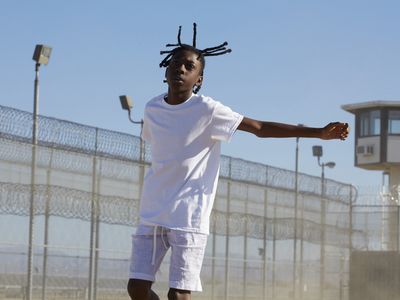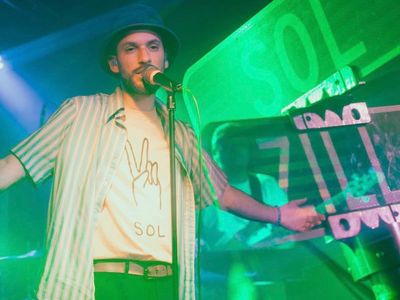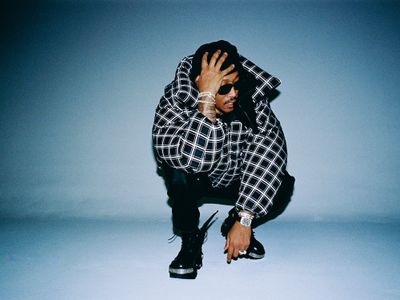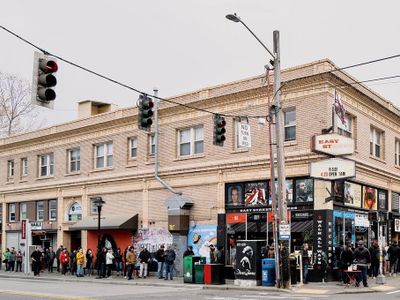Elliot Moss
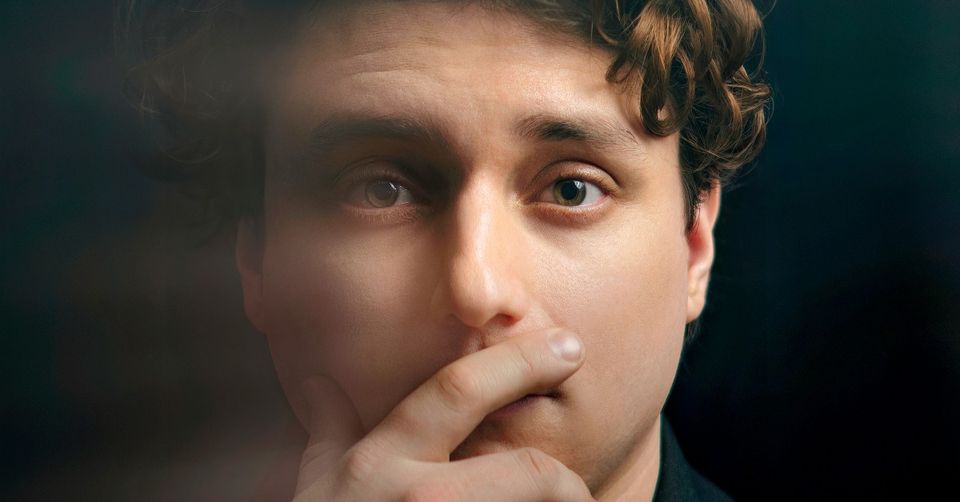
The following description comes from the event organizer.
Barboza PresentsElliot Moss
How I Fell Tour with Rubio
An inveterate musician raised in the recording studio, Elliot Moss has devoted much of his life to dreaming up sonic worlds with a strangely transportive power. After finding breakout success with his viral hit single “Slip” at age 18, the New York City-bred singer/songwriter/multi-instrumentalist brought his unfettered imagination and refined musicality to his 2015 debut Highspeeds and its follow-up A Change In Diet (a 2020 LP praised by Pitchfork as “sharp and deftly evocative”). When it came time for his third album How I Fell, Moss matched his limitless ingenuity with a newly heightened commitment to exacting emotional truth—a dynamic that soon led to his most fully realized offering yet, a nuanced meditation on how personal limitations both burden and define us. Rooted in his belief that “peace comes from feeling things sharply,” the result is a luminous body of work that invites both intense introspection and transformative catharsis. “Each song on this album is wrapped around a precise moment or experience. Anytime I caught myself hiding behind a thick soundscape, or sacrificing sincerity for comfort, I’d go back to the source and ensure I was communicating it as directly and authentically as possible,” says Moss. “It took some practice, but eventually it felt refreshing not to let anything slide. I wanted to create something I could look back on in ten years and still feel I’d been totally honest.” Produced by Moss and mainly recorded at his self-built studio, How I Fell encompasses 11 lushly detailed songs he refers to as “snow globes,” each portraying a pivotal and often painful moment on his way toward greater self-understanding. With the help and insight from fellow producer Damian Taylor (Björk, Arcade Fire, Japandroids), Moss shaped the album’s boldly original form of alt-pop by working with a vast palette of instrumentation and electronic elements, embracing a decidedly more guitar-centric sound than his past work. “Guitar was my first instrument and I was obsessed with it as a kid, so it felt right to write songs with actual riffs for once,” says Moss, who got his start playing bass in studio sessions helmed by his father, Peter Denenberg (a veteran engineer who’s worked with the likes of Todd Rundgren, Iggy Pop, and Chrissie Hynde). In creating How I Fell, he also made a point of amplifying the lived-in intimacy of his songwriting by taking a more handmade and rigorous approach to the production process. “In the past I’d done a lot of programming because it was comfortable; there isn’t ever any one ‘moment’ to think about. But with this album I found that the songs that demanded the most of my musicianship felt most satisfying,” he says. “Heaps of sweat and tears went into many of these takes. I’d spend hours hunting for the right moment. For the first time, I favored the arc and imperfections of a complete performance over pushing grains around until they fit together under a microscope.” How I Fell takes its title from a slow-burning track whose transparency Moss found especially daunting. “There’s a sort of double meaning to the title: in one way it’s saying, ‘Here are all the ways I’m failing myself,’” he explains. “But it’s also about why I feel just as responsible when someone hurts me—there’s some power and comfort in feeling like you do have control, because it’s better than feeling helpless.” Featuring a performance from legendary bassist Will Lee (David Bowie, Bob Dylan, James Brown), “How I Fell” ultimately makes for one of the album’s most extravagantly arranged moments, bringing Moss’s gently soulful vocals to a heavy-hearted confession adorned with so many spellbinding details (e.g., ethereal synth tones, delicate piano melodies, gorgeously understated saxophone work). At every turn on How I Fell, Moss reveals his rare gift for bringing the most specific emotions to life through his elegant yet highly intuitive use of sound design. To that end, the album-opening “Altitude” perfectly captures the odd freedom in surrendering to the daze of depression, building to a frenetic crescendo that Moss conceptualized as “the feeling of getting dragged around in a thunderstorm.” On “Lazy,” Moss layers slippery synth lines over airtight drum patterns, creating an uneasy dissonance that mirrors the song’s emotional undercurrent. “The lyrics are listing the ways I distract myself from the reasons for my uncertainties or failures—which can be uncomfortable to admit, so it made sense for the instrumentation to take on that same uneasiness,” he says. And on “Magic,” Moss transforms a heartbreaking turn of events into a wildly epic anthem that’s equal parts gut-punching and sublimely joyful. “‘Magic’ is about my father undergoing treatment for cancer and the possibility that his hearing might be damaged, meaning we’d no longer be able to do what we’ve always loved to do together,” says Moss. “The idea of that happening is so terrifying to me, so my reaction was to be as loud and proud as possible in the production of “Magic.” In spite of my usual ‘less is more’ approach, I kept layering more and more sounds onto the track. Like celebrating, it was sort of healing to make ‘Magic’ erupt into the most noise I could possibly put out as just one person.” By the time How I Fell ends on the jittery hope of “Next Year’s Light,” Moss has channeled an entire whirlwind of moods (the quiet devastation of “Hearts Lose” and its reflection on a ruined friendship, the nostalgia-tinged daydreaming of “Everglades”). But while the album never shies away from exploring the murkiest depths of those emotions, each song echoes the deep sense of enchantment he endlessly finds in the creative process. “Working on music has always been as comfortable for me as lying in bed,” says Moss. “Sometimes it’s that I want to play with some new piece of gear that’s sitting on my bench, other times it’s that I’m feeling horrible and need to go record a tune that I’ll never even put out. The people who know me look at me like I’m crazy sometimes and ask, ‘How can you do this all day?’ It’s because it’s what I want to do all day.”

